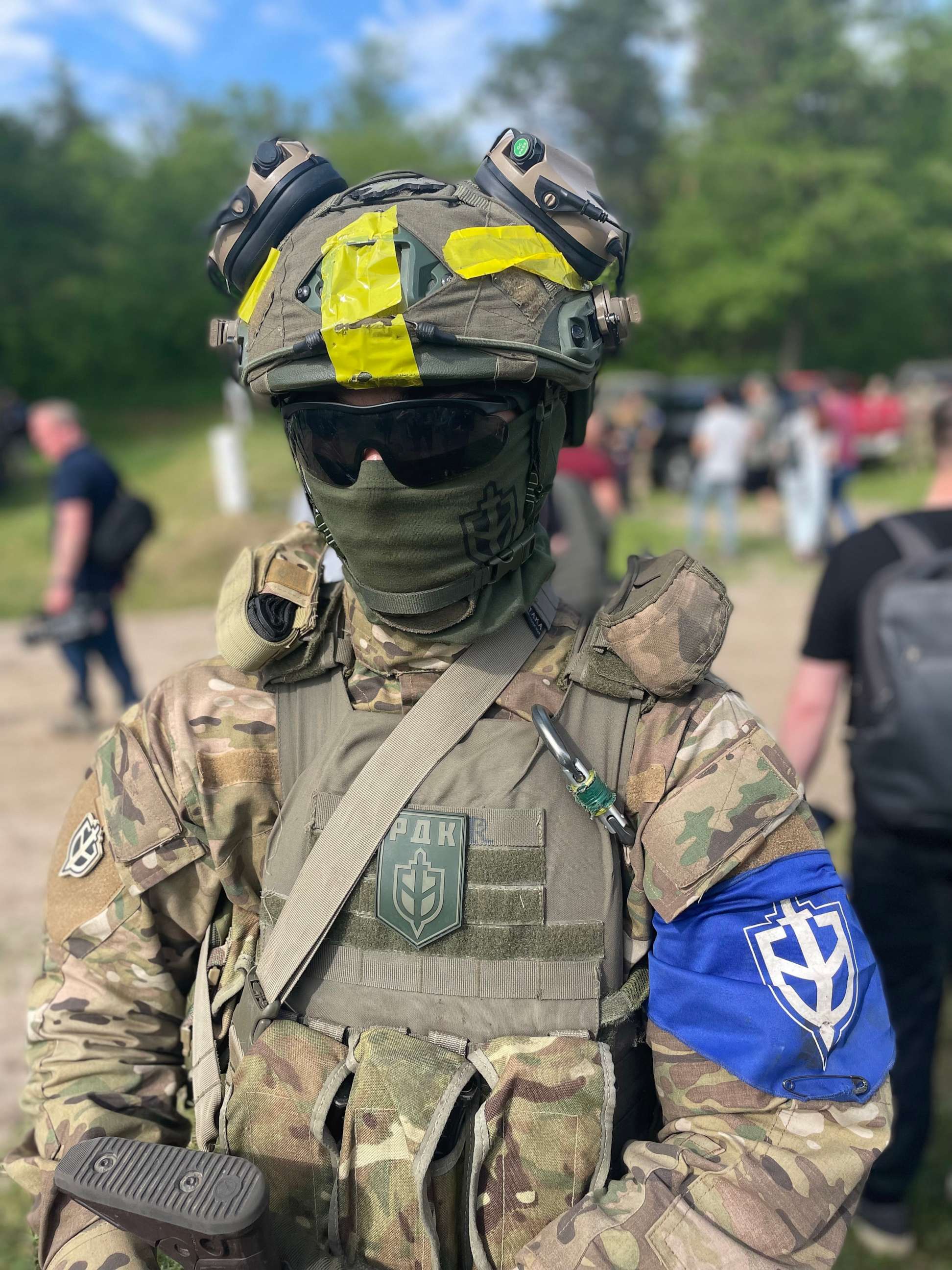What has been happening in Belgorod, a Russian region that borders Ukraine?
Earlier this week, an unknown number of heavily armed soldiers stormed over Ukraine’s north-eastern border with Russia.
At around the same time, Russian media reported explosions inside Belgorod. Russian officials later said Ukrainian artillery was used to fire into Belgorod.
The official version of events from the Ukrainian side is that only Russian nationals, belonging to two far-right paramilitary groups, were involved in the assault.
So far there is no evidence to contradict that claim.
The two paramilitary groups involved are the Russian Volunteer Corps and the Free Russia Legion. They are made up of Russian nationals who have been fighting in Ukraine alongside the Ukrainian military since Russia launched its full-scale invasion.
It is unclear whether the Ukrainian-backed operation in that region is completely over.
On Thursday, the governor of the Russian region of Belgorod, Vyacheslav Gladkov, claimed that the Ukrainian military was shelling areas inside Belgorod and that Russian air defense had been active in a district of Belgorod, which borders Ukraine.
There have been other reports of explosions and drone attacks in the Russian region.
Eyewitness testimony from local civilians, videos circulating online and images filmed by independent media in Belgorod back some of those reports up.
The Ukrainian-backed far-right paramilitary groups who claimed responsibility for the operation in Belgorod also alleged, without providing details, that their mission was "still ongoing."

Denis Kapustin, the leader of the Russian Volunteer Corps, told reporters that "Phase One" of the operation had ended. He also claimed that "Phase Two" would begin "in a couple of days."
The Russian authorities took the threat seriously and launched a counterterrorism operation in the border region.
Some local residents were also evacuated from settlements close to the border where the fighting was taking place.
The level of strategic military success achieved by the Ukrainian-backed mission in Belgorod is unclear.

On Wednesday Kapustin claimed his men had taken control of roughly 16 square miles of territory inside Russia.
He also claimed two of his fighters had been killed in the raid. Russian officials said dozens of "terrorists" had been killed.
None of these figures can be independently verified.
Ukraine’s involvement
Publicly, Ukraine has tried to distance itself from the execution of the operation in Belgorod, however, there is mounting evidence that Ukraine was involved.
A commander for the Free Russia Legion, who goes by the military callsign of "Cesar," told reporters on Wednesday that armored vehicles, "light weaponry" and "artillery weapons" used in the operation were supplied by Ukraine.
Speaking at the same event in northern Ukraine, Kapustin drew a distinction between the actions of his men in Ukraine and the operation on the other side of the border in Belgorod.
"Everything we do within the state borders of Ukraine we obviously coordinate with the Ukrainian military. Everything we do, every decision we make beyond the border (of Ukraine) is our decision," he claimed in a response to a question from ABC News.

Kapustin told reporters that his men had been "encouraged" by the Ukrainian military.
"They wished us good luck," he said.
Despite trying to distance themselves from the actual military operation in Russia, Ukrainian officials have celebrated what has been happening on social media and have mocked the Russian authorities for appearing to have lost control of an area near the border for an extended period of time.
In some ways, the apparent tactics of Ukraine are reminiscent of the Kremlin’s modus operandi in Ukraine’s eastern Donbas during a war which began in the spring of 2014.
Back then, Russia armed and supported Ukrainian separatists but falsely denied any involvement.
Aleksey Baranovsky, a Russian dissident who is part of the Political Center of Russian Armed Opposition, suggested to ABC News that the Kremlin was now receiving a dose of its own medicine.
"This game works both ways," said Baranovsky, whose organization is a political affiliate of the paramilitary groups which conducted the operation in Belgorod.
"Putin thought that he was the only one to play this game," he said. "One should respond to aggression with cunning. And Ukraine has been doing that in a smart way, as have the Russian volunteers."

Far right links
Fighters from the two paramilitary groups were also questioned by reporters on Wednesday about their neo-Nazi and white supremacist links.
Kapustin said his group had never hidden the fact it was a far-right organization.
"We are conservative traditionalist right wingers. I don’t care what [the Russian authorities] call us. Should we care how our enemy insults us?" he said.
The spokesman of the Russian Volunteer Corps claimed his group was "more centrist" than the Russian Volunteer Corps.
Both groups emphasized that their fight against Vladimir Putin’s regime in Russia gave them a common cause with Ukraine.
According to Kapustin, the Ukrainian military and his group are "brothers in arms."
The timing of the operation is noteworthy, coming as Ukrainian officials promise a major counteroffensive "soon."




